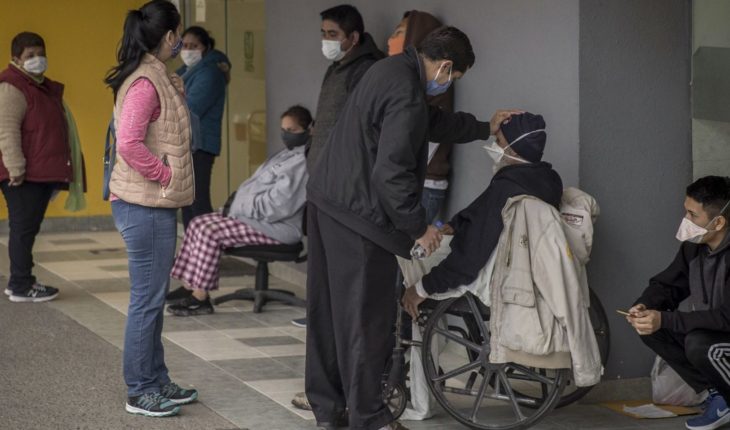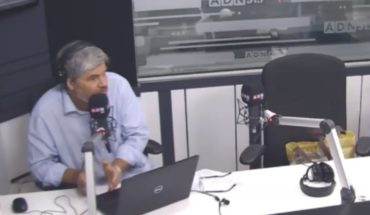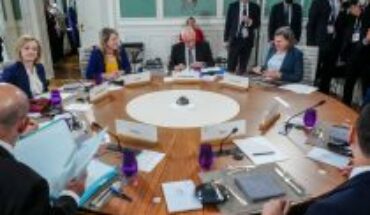The General Health Council in Mexico launched this weekend the Bioethical Guide to the Allocation of Critical Medicine Resources, which lays down scientific and ethical provisions to address the contingency of COVID-19 in the different public and private hospitals of the country.
Among the guidelines is the making of telephone video calls for critically ill patients who wish to say goodbye to their relatives, recommendations to determine which sick person will be subject to available health sector resources, such as whether they have another disease or if they are younger, as well as a series of rules for the relatives of these patients to appeal to medical decisions.
In the event of a tie between two patients with the same characteristics as age and sex requiring respirators, one of the inputs that the guide recognizes to be scarce, it must be “recourse to the life-complete principle. This means that younger patients must receive intensive care care for older patients. The proposed age categories are: 0-12, 12-40, 4160, 61-75, and +75”.
However, it also states that if there is no tiebreaker when resorting to the principle of complete life, “the decision on who will receive access to scarce resources should be taken at random”.
In addition, the sex of the patient will also influence when there is a tie. To this end, the General Health Council recommends “taking into account that the COVID-19 mortality rate is not the same between the sexes”.
The triage organs
The General Health Council is a collegiate body that is directly dependent on the President of the Republic. It is the health authority whose provisions are mandatory in the country. In the Bioethical Guide to The Allocation of Critical Medicine Resources launched this weekend, its members acknowledge that in the face of “the lack of sufficient equipment in critical medicine”, such as the Covid 19 virus, it is necessary to “try to solve some of the ethical problems that arise during a public health emergency, and to lessen the moral distress that health personnel will face in the face of the need to allocate scarce critical medicine resources”.
The guide also shows guidelines for the “distribution of limited resources not to be carried out arbitrarily or discriminatoryly, but with public health care criteria”.
One of the provisions established is that each health centre, public or private, where medical care is provided by Covid 19, must form triage bodies, which will be responsible for allocating scarce critical medicine resources”.
Triage groups will be “jointly appointed by the director of the critical care unit and the director of the health service.”
On the profile of its members the document indicates that these groups or teams will be made up of three people, ideally, a doctor who is instensivist or a urgency; a nurse practitioner or medical emergencies; and a health center administrator.
In addition, the guide offers with examples the criteria that must be taken into account in the area of respirators, a good that is scarce according to the guide. Patients who are young over older people are privileged, but also if they have one or more diseases. In the case of two patients with the same possibilities, the above-mentioned tiebreaker criteria are established.
“Using these principles to allocate critical medicine resources creates few problems when we don’t face cases like the following: 80-year-old A patient needs a ventilator, 20-year-old patient B needs a ventilator. If patient A receives the fan she will live 7 more years, if patient B receives the fan she will live 65 more years. In the face of this problem, an additional principle must be introduced: saving as many lives-by-completion… A life-by-completion should be understood as one that has not yet gone through the different states of human bio-psycho-social development (i.e. childhood, adolescence, adulthood, old age).”
In the light of the Council members, the “use of the principle of full life does not unfairly discriminate against comparatively older persons. This is therefore therefore the person who does not receive treatment has enjoyed a good, to live a life that includes more stages, for longer. This means that the younger person is in a situation where he would lose much more if he did not access scarce critical medicine resources. What I would lose is the possibility of obtaining the good of living a life that includes more stages.”
Communication to patients
The guide also establishes the process to be followed to communicate decisions made that are immersed with the health of the Covid 19 patient or to their families.
Basically all responsibility for communicating will lie with one of the two triage group officers, who will be responsible for giving notice of decisions made and reassessments to the personnel in charge of admission to the critical care unit, the treating physicians and the patients or family members.
The Triaje officer will have an obligation to explain “to the patient and/or family members the implications of the decision made, and how it was made. If the necessary resources exist social service or palliative care personnel should be present when: (i) a patient, and/or family members are informed, who will not be admitted to the intensive care unit, (ii) a patient, and/or family members, is told that intensive care (e.g. mechanical ventilator) will be removed”.
According to the guide “even if it may be customary for the treating physician to be the one who normally communicates to the notic patient about his/her medical treatment, in the event of a public health emergency the inclusion of Officer Triage aims to reduce the moral distress that falls upon treating physicians. Anguish that is exacerbated by the number of critical patients a doctor treats during an emergency.”
Medical appeals
The Council’s guide also establishes the mechanism by which a patient or his or her family members can appeal any decision made.
“There needs to be a system of appeal and dispute resolution to ensure procedural justice.”
However, it is stated that “the appeal to the initial decision on the allocation of resources must be resolved immediately”.
“Failure to resolve it in such a way would make the appeal system operationally feasible and could cause irreparable harm to the patient. The appeal to reassessment decisions on withdrawing critical medicine resources (which are already being used by a patient but not benefiting you) must be a result before resources are withdrawn.”
It is explained that while decisions to withdraw resources already used can cause greater moral distress than decisions about denying initial access to those resources. “This is why the decision to withdraw used resources, for example, a mechanical fan, must depend on a meticulous clinical evaluation.”
For this appeals are classified as permitted and not allowed. Where the first are those that ask for, the triage group’s decision is rectified as an error is considered to have been made when calculating the prioritization score; meanwhile, the latter are those that question the relevance of the prioritization system.
In all cases where an appeal exists, the interested party will be asked to explain to the Triage Officer the reason why it appeals; as long as the triage team will explain the basis of their initial decision, or re-evaluation.
Medical staff is a priority
The guide further states that poor critical medicine resources should be prioritized to health personnel fighting covid-19’s emergency.
“The prioritization of such health personnel must be absolute. This means that health personnel facing the pandemic will have to move to the top of the list to obtain scarce critical medicine resources when required. The only exception to this point is when health personnel present such comorities, or their prognosis, that it would be futile for scarce critical medicine resources to be accessed.”
They point out that while the intrinsic value of health personnel is equal to, not greater, that of other members of the community. “Even though this is the case, health personnel have greater instrumental value during the medical emergency. And it is because of the instrumental courage they have to deal with the epidemic that priority must be given to such health personnel. personnel facing the COVID-19 emergency only.”
A number of characteristics “should not be taken into account for the allocation of scarce critical medicine resources” are also established, such as the patient’s “political affiliation, religion, family head, perceived social value, nationality or status, gender, race, sexual preference, disability”.
In the context of private health to the above list should be added: have health insurance, and have financial resources to solve hospitalization costs.
“The only characteristic that needs to be taken into account when allocating scarce critical medicine resources is the possibility of benefiting from such medical resources. The only exception to this, as explained below, is to belong to the health personnel fighting the Covid 19 epidemic.”
Here you can consult the complete guide prepared by the General Health Council.
What we do in Animal Político requires professional journalists, teamwork, dialogue with readers and something very important: independence. You can help us keep going. Be part of the team.
Subscribe to Animal Político, receive benefits and support free journalism #YoSoyAnimal.
translated from Spanish: Even with a blow-up, so they intend to save the lives of people with COVID-19 in Mexico
April 13, 2020 |





